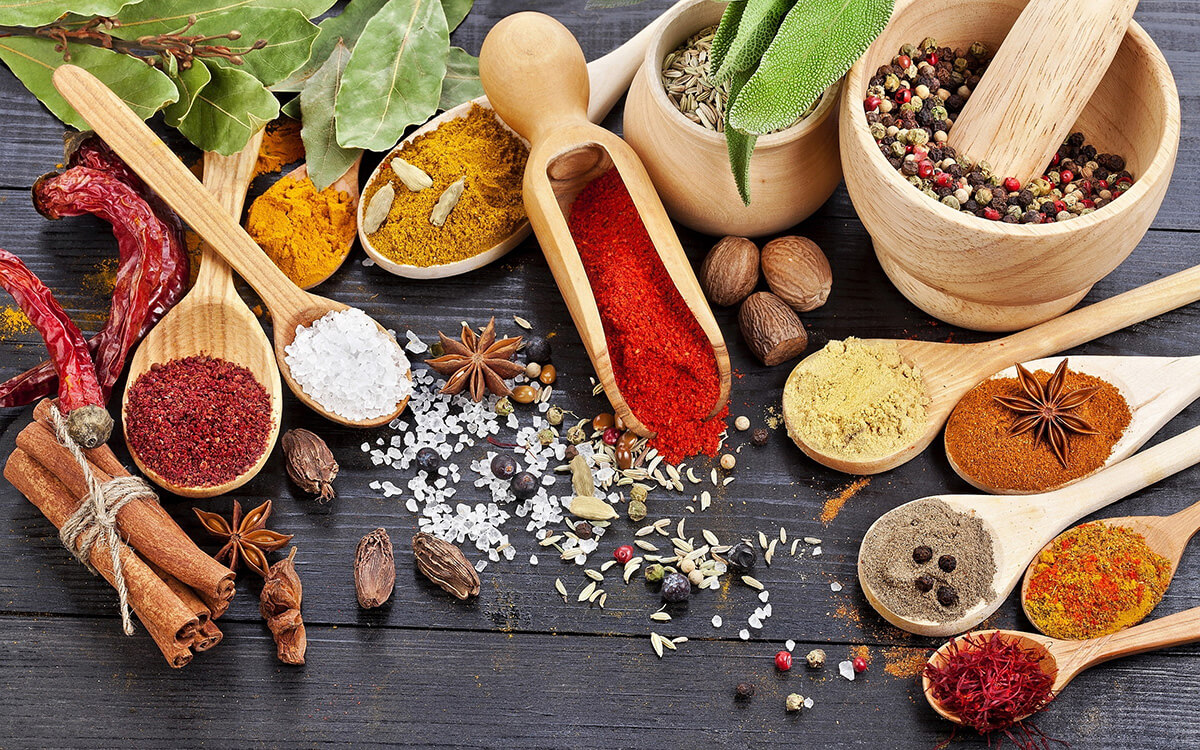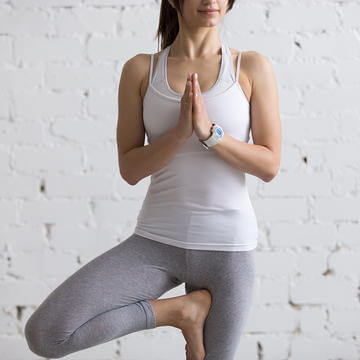Diet & Lifestyle Management
Diet & Lifestyle Management
पथ्यं पथोsनपेतं यद्यम् च उक्तं मनसः प्रियम् |
यच्च अप्रियम् अपथ्यं च नियतं तन्न लक्षयेत् ||
Pathya-Apathya
The aahar-vihar which is beneficial and nutritional to the body and also give the happiness to the mind is known as Pathya and opposite to that is known as Apathya.
Diet-
Pathya Ahara (desirable & health promoting diets) and Apathya Ahara (health harming foods).
Lifestyle-
Pathya Vihara (healthy life style) and Apathya Vihara (life styles which are not healthy) under different conditions and for different diseases.

Why Pathya-Apathya?
The world today is eating a diet without having the slightest realization of the diet’s positive or negative effects on both an individual and on society as a whole. When we put on our clothes, most of us take the trouble of looking into the mirror and to speculate about how we look,But not many of us stop to think for a minute or two before we push down the food into our mouths ? almost anything that a friend offers, everything that the idiot box (TV) says is worth trying and everything that a famous food-joint boasts about.
With great regret we have to accept that we have blindly followed this modern day life style and consequently are now also following the modern day death style. Innumerable life threatening ailments like Cancer, Heart diseases, Diabetes, Hypertension and the many Auto Immune diseases that contribute towards human suffering and deaths which were not very common previously, are now on the rise. Scientific evidence indicates that improper diet, the irrational intake of drugs, stress, alcoholism, smoking and the extremely sedentary life style etc., are responsible for this rise in the above diseases.
Ayurveda states in detail, the specific diet and life styles to be followed during different seasons, under different climatic conditions, for different age groups, and people of different Prakriti of body and mind (mind- body constitution) and for different diseases etc. The equilibrium between Man and Nature leads to perfect health. The five elements in nature ((ether, air, fire, water and earth) are present in every human being and govern every life on Earth. These five elements are in fact present in the naturally available food that we eat. Therefore any imbalance in the relation between man and nature is bought in equilibrium by the art of maintaining a proper diet.
तस्माद् भिषग्भिराहारो महाभैषज्यमुच्यते |
All diseases can be cured by following dietetic rules carefully along with the proper herbal supplements; but if a patient does not attend to his diet, a hundred good medicines will not cure it.
Let Your Food Be Your Medicine
Diet-
Benfits of a Personalized Ayurvedic Diet:
- Better health, youthfulness and better memory.
- More energy, endurance and strength.
- A gradual decrease in existing diseases.
- Mint is very beneficial in losing weight. A chutney of green mint with some simple spices can be taken with meals. Mint tea also helps.Prevention of colds, flu's and other diseases.
- Greater ability to handle stress and anxiety.
- Saves your money in the long run.
- Improved sleep and concentration.
- Better digestion, metabolism and elimination.
- Healthier skin, complexion and slowed down aging.
- Increases intelligent.
- Healthier progeny.
- Stronger immune system.
- Weight loss or gain and better sense control.

Principles for healthy eating:
- Food should be hot, tasty and easy to digest. Eat proper amount of food.
- Food eaten should not be too much or too little.
- Do not eat when you are not hungry and conversely do not fail to eat when you are hungry.
- Eat in congenial and pleasant surroundings with all accessories necessary for the enjoyment of food.
- Eating should neither be rushed nor too leisurely.
- Concentrate on your food while eating.
Diet according to prakriti-
A vata individual should take warm and sweet food articles. A person with pitta prakriti should take cool, heavy, sweet, bitter and astringent food items. A person with kapha prakriti should take food, which is dry, warm, light, pungent, bitter and astringent.
These diet restrictions are to make
- 1. available most of the drug used get absorbed without interference of other food which destroy active ingredients of medicine.
- 2. to keep patient get not indulged in other desires which otherwise destroy the benifits of treatment started.
- 3. to get needed active principals of other food materials which with its presence accelarate the action of medicine in vivo.
Diet & Lifestyle Management
Lifestyle
Life is God's precious gift to us and it is up to us to make the best of it. Health is the most basic and crucial requirement for a fulfilled life. Ayurveda prescribes a daily routine, 'dinacharya' and a seasonal routine 'ritucharya' for good health.
Dincharya
Daily routine in Ayurveda is known as Dinacharya. Din is for the span of day and night and Charya stands for the activities done by someone. These activities are not only wakening up, sleeping and sitting but also covers all, how we meet others, what we do in the whole day, all social activities and even the activities to make bread and butter are included in the topic of Daily routine. So setting a daily routine is must for a better health. Not only the physiological health but also the psychological, spiritual, social and economical health.
Wake up :-
An individual should wake up early in the morning before sunrise.

Clean habits :-
Physical and mental purity are pre-requisites for the day's activities. This is achieved through clean habits like brushing the teeth, scraping the tongue, gargling with water which has a pinch of turmeric added to it, bathing, trimming of beard, hair and nails and elimination of body wastes. Meditation enables elimination of mental wastes.
Massage :-
Daily oil massage strengthens the skin and improves its color and texture. It increases circulation, improves vision and resistance to disease. Massage of the head strengthens and calms sense organs.
Exercise :-
Exercise is best performed in the morning. Should depend on your age and prakriti. Only kapha persons should exercise vigorously. Other prakritis should exercise moderately. Exercise is not advisable for the very weak or for those with respiratory or cardiac disorders.
Bathing :-
Bathing within one hour after eating is prohibited.
Purification of surroundings :-
Purification of our bodies and minds should be accompanied by purification of our houses and our surroundings.
Ritucharya
The change of seasons affects the state of our doshas considerably. Hence Ayurveda advocates a seasonal routine to ward off imbalances of the doshas.Vata increases during winter and spring, pitta during summer and kapha during late winter and spring.
Do’s and Don’t’s
- Uninterrupted sound sleep is essential- 6 to 8 hours sleep at night is necessary for complete rehabilitation of wasted energy and reconstruction of broken down tissues for most people.
- Suppression of the natural urges should be avoided. Go to toilet when there is a good pressure for stools. Don't strangulate for the stools as it can lead to the Piles, Fissures, Prolapse of anal canal and many other diseases of ano-rectal region.
- When going for exercise, remember that you should work out until you sweat in armpits and on forehead, not more than this. Because by exerting your body, you are enhancing the wear and tears inside the body.
- When taking bath take care water shouldn't be too hot or too warm!! It helps sooth the nerves, increase and equalise the circulation, promote free excretion through pores and causes general relaxation of all the tissues and organs of the body.
- Only half the capacity of the food is to be filled with solid food, one-fourth with liquid and remaining one fourth left empty.
- Eat in time and eat according to your Doshas. Try to plan your diet according to your Doshas and your Prakruti.
- Foodstuffs that are either too spicy or too acidic should be avoided.
- Go to bed in time. Nights are to sleep and days are to work.Don't sleep in day time. It causes over 46 diseases according to Ayurveda like - obesity, diabetes, arthritis, heart diseases and many more.
- Don't cheat or make any false statements, it makes you to remember everything and once you are over loaded by the useless thoughts, these will lead you to depression, anxiety and many other diseases at your nervous center (Brain).
General lifestyle management
Where we get energy from
The food we eat is used to provide energy for every function in the body, from walking and talking to digesting and breathing.
The main types of food – carbohydrate, protein and fats – are important sources of energy. Current guidelines suggest that we should get:
- about 50 per cent of our energy from carbohydrates (cereals, bread, pasta and potatoes)
- 10 to15 per cent from protein (meat, cheese, soya)
- less than 30 per cent of energy from fats (70g per day for women, 100g for men). Many of us eat more than this a day.
The actual amount of energy you require will depend upon the type of lifestyle you lead. The recommended figures are 2000 calories per day for women and 2500 for men – but you may need less than this if you take little exercise and sit at a desk all day, and more than this if your job involves manual labour.
Water
Good hydration is essential for mind and body, so make sure you drink plenty of water every day. Not all drinks are equal, so if you need to boost your liquid intake, watch your caffeine (and sugar) levels don't creep up.
Sleep
Most adults need six to eight hours of sleep each night. When we sleep, we rest and our body is able to renew its energy. This may be why a good night's sleep seems to improve the immune system, minimising our risk of illness. Getting a good night's sleep influences our psychological wellbeing.
Exercise
Most people think of exercise solely in terms of weight loss, but it also builds muscles and bones, lifts mood and is a great way of beating stress.
Alcohol
Alcohol is high in calorie content and low on nutrition. It contributes to weight gain and if you drink too much, too often, it can lead to all sorts of health problems, such as high blood pressure and liver damage.
Smoking
Smoking causes cell damage, which can lead to illnesses, such as cancer and heart disease. It can also worsen other diseases, such as ulcerative colitis and asthma, and is linked to poor wound healing and premature aging of the skin, the so-called 'smoker's face'.
Smoking stops you absorbing vitamin C and other nutrients. The only way to avoid this damage is to stop smoking and better still, avoid starting in the first place.
Stress
We all have an instinctive stress response that releases hormones into our bloodstream when we are faced with danger. These hormones cause instant mental and physical change in us, giving added strength and endurance so we can fight or take flight.
Instead of using our stress hormones in emergencies, we live at such a pace that many of us activate them all the time – like when we are going to miss a train or someone cuts us up on the motorway. Most tense people don't give themselves sufficient time and space to rest after each stress-filled moment. With no release, your stress hormones keep on working, which is why there are so many people around who lose their tempers at the slightest provocation.



